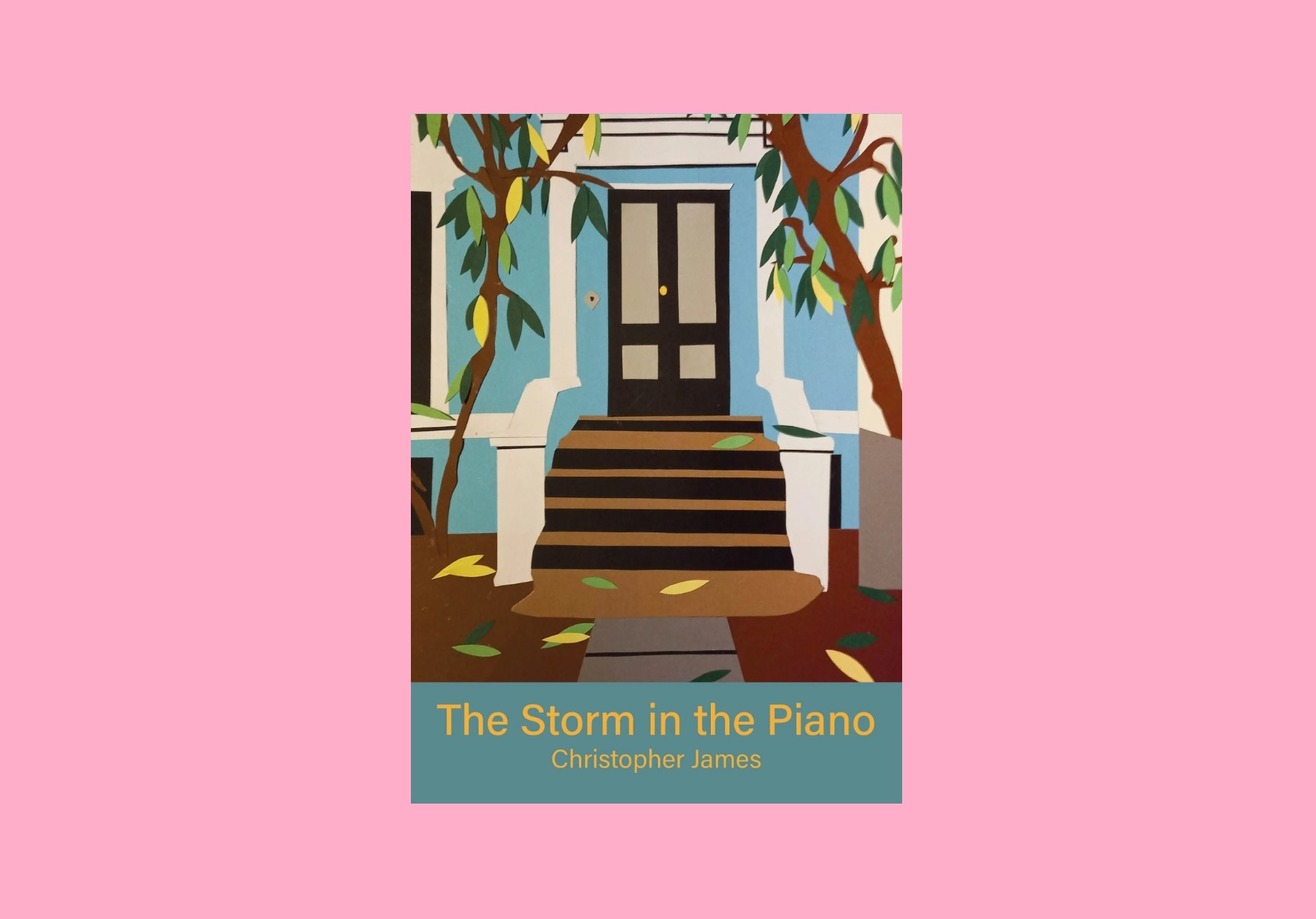Neil Elder
Christopher James – winner of the 2008 National Poetry Competition and author of several volumes of poetry – remains “criminally underrated”, as Martin Malone once put it. James’ new pamphlet, The Storm in the Piano (Maytree Press, 2022), confirms his ability to combine the fantastical with poignancy so that even the most elaborate conceits retain a delicate touch of humanity. Indeed, the poems are generous – recognising such qualities in people as kindness and resilience, as well as playfulness – and celebrate hope in adversity. Perhaps, in itself, this optimism is what begins to distinguish James from so many of his peers.
The twenty-seven poems of The Storm in the Piano take in modern day Aleppo, Wordsworth’s Lake District, even Pluto. The inventive vignettes that James gives us work so well because of his eye for concrete details. ‘The Milliner of Hudaydah’ is a good example of how vividly the places and people are realised:
You will find me find me on Zayad Street, the shop with the purple door, below the high tower and balcony that juts like the brim of a madhalla. Each morning, I make black tea then listen to the Apaches bomb the suburbs then the jets that stitch the sky with fire.
Later the milliner talks of “streaming Aljazeera on my Samsung”. It is the fact that we have the street name, the colour of the tea and the make of the phone that gives life to the story; James’ eye for detail is on show throughout the pamphlet. ‘Sherlock of Aleppo’ sees two boys “crawl like bees / through the ruined honeycomb of Aleppo,” the poem a celebration of the imagination as Victor and Sayid cast themselves as Holmes and Watson living at “221b Al Khandaq Street, a bombed out / paint shop”. They are looking for clues in the case of their brother, “a t-shirt soaked in blood, a single school shoe”. I don’t know if James has visited the places he describes, or whether he just has a knack with Google, but at times his poems are so detailed as to be visitor guides. (Out of curiosity I looked up a number of the streets, hotels and other locations that crop up in the poems and they all seem to stand up.) If you are visiting Benghazi any time soon, for example, then navigating Gamal Abdel Nasser Street might be made easier if you read ‘The Unicyclist of Benghazi’.
‘The Milliner of Hudaydah’ ends with the speaker filling the madhallas he makes with rice in order to feed children in this war-torn part of Yemen:
…. I accept no pay except to watch their children eat, knowing, one day, they will buy my hats.
The generosity of the human spirit is brought to the fore and celebrated by James. Although he remains attuned to the brutal circumstances that many suffer, he finds room for hope, even humour. In ‘The Buddy Holly Fan Club of Damascus’, “Tarek on bass, / Victor on goblet drums and myself on Qanun” live amid the brutality of the Assad regime and make attempts to escape Syria. Along the way they hide out in a hair salon, paint Buddy Holly-style glasses onto a giant portrait of Assad and run for the hills in “pencil thin ties and suede loafers”.
Buddy Holly is not the only historical figure in these poems. Charles Dickens makes an appearance in ‘The Crossing’, which takes as its starting point the 1865 train crash that Dickens was involved in. James’ dexterity with language and his ability to maintain a set of images is on display here: Dickens stops “mid-sentence – a broken train of thought” as the train sweeps “through Kent like ink across a page, / the carriages jostling like words looking for meaning”. When the accident occurs, “carriages splintered like books twisted apart” and Dickens sees himself as a character “scratched into life / by my own pen”. Towards the end of the poem is “a trackman still holding his red flag” – perhaps a deft nod to Dickens’ own ghostly short story ‘The Signalman’, published a year after the crash. James walks a fine line: the layering of imagery with language could become too much, too close to glib punning, but he navigates this danger successfully.
‘The Archbishops at the Lido’ is another poem that displays James’ fondness for wordplay: the sunlight falls in “croziers”, the water is “a font … a hundred yards of holy water” and Thomas Crammer swims “a front crawl, as languid as a sinner to confession”. This poem, endearingly bizarre, was – like many others in this pamphlet – successful in a national competition and James is, in fact, a serial competition winner. Possibly, reading these poems as one, the formula of his success, the mechanism at work, becomes apparent: a well-known face presented in a strange context, an occasion incongruous with its surroundings (‘The Circus of St Kilda’), all in a balancing act between sadness and humour. However, this does not detract from the reader’s enjoyment, nor the poet’s skill.
The Storm in the Piano stands out from many other publications; introspective and reactive poetry has its place, but so too does work like this – work that can transport the reader to places only the poet seems to know exist. There is nothing wrong with joy and wonder, and perhaps if we were more prepared to embrace such things, the work of Christopher James would be more widely enjoyed.

Comments
One response to “On ‘The Storm in the Piano’ by Christopher James”
[…] I’m delighted that the review I wrote of ‘The Storm In The Piano’ by Christopher James is now on the Wild Court Poetry site, here https://wildcourt.co.uk/features/reviews/on-the-storm-in-the-piano-by-christopher-james/ […]